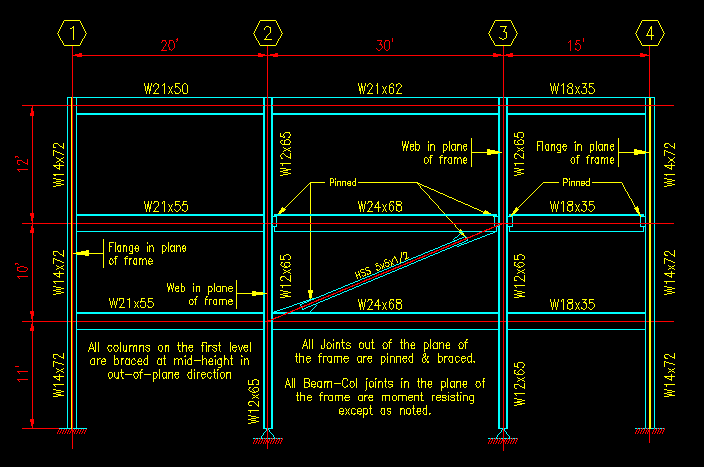|
|
Section 6.5
Example Problem 6.3
Last Revised: 08/07/2017
The example problems presented in this section have a spreadsheet solution. You will need this file to follow along with the presented solutions. You can click on the following link to get the file:
Chapter 6: Excel Spreadsheet Solutions
Given: The frame shown Figure 6.5.3.1 (see also BGSE detail MISCDET_STL 3/S5.3).
Wanted: determine the effective lengths for all the column segments in the frame.
Solution:
In this problem, we are assuming that the Direct Analysis method is not being used. We are using the provisions of the SCM Appendix 7 with the intent of using the results in conjunction with an approximate second order analysis using the provisions of the SCM Appendix 8. This exercise would not be required if the Direct Analysis method were used.
In the plane of the frame, there are twelve (12) separate column length computations to do. One for each column at each level on each grid. Out of plane, there are sixteen (16) column lengths, however they are the same for each grid, so there are only five (5) calculations to do. The computations for each presented here. The spreadsheet file for the chapter 6 example problems has the computations as well.
On Figure 6.5.3.1, click on any column to see the calculation of the effective lengths. You should look at all of the columns as there are several different scenarios presented. You can use this as a tutorial by attempting the problems before clicking on the solutions.
Pay particular note to the drawn and stated support and connection conditions.
Figure 6.5.3.1
Sample Frame
